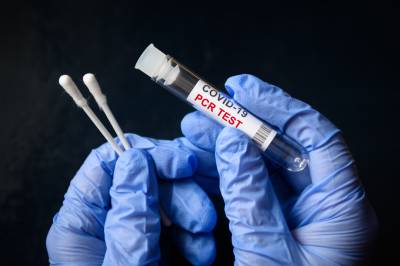With the COVID-19 pandemic, we became more familiar with the term of antigen and PCR tests.
But do you know the differences between them?
Read on to find out the facts!
| Antigen | PCR |
| is a blood or tissue test that detects the presence of a specific antigen, or protein, in the body. | is a laboratory test that can identify a particular sequence of DNA. |
| results are typically available within a few days. | results can take several days or weeks. |
| Is more general. | Is more specific. |
| Less expensive. | More expensive. |
| Considered less accurate. | Considered more accurate. |
| Is a qualitative test. | Is a quantitative test. |
| Is considered less complicated and can be done at home. | Is considered more complicated and always needs laboratory testing. |
| Uses blood samples or swabbing the inside of check or infected wounds. | Uses saliva or genital secretions. |

The antigen test is a blood or tissue test that detects the presence of a specific antigen, or protein, in the body. The PCR (polymerase chain reaction) test is a laboratory test that can identify a particular sequence of DNA.
Antigen test results are typically available within a few days, while PCR test results can take several days or weeks.
The antigen test is more of a general test, while the PCR test is more specific and can identify a particular DNA sequence. The antigen test is less expensive than the PCR test.
PCR test results are more accurate than antigen test results. It is possible for a person to test negative for an antigen even if they are infected, while a PCR test will always identify the presence of a particular DNA sequence. That’s why PCR is the gold standard for diagnosing many infections.
Another difference is that the antigen test is a qualitative test, which means it just tells you if the antigen is present or not, while the PCR test is a quantitative test, which means it can give you a measure of how much of the DNA sequence is present.
People who take antigen test results at face value and don’t get a PCR test as a follow-up may not be getting the most accurate information about their infection status.
There are a few different types of home antigen test kits available, and they all work a little bit differently. Some antigen test kits require you to prick your finger and collect a small blood sample. Others require you to swab the inside of your cheek or the surface of an infected wound.
Once you have collected a sample, you just need to follow the instructions on the kit to send it in for testing. Most antigen test kits are sent to a laboratory for testing, but a few do offer the option of home testing.
PCR test kits are also available for home testing, but they are a little more complicated to use than antigen test kits. PCR test kits usually require you to collect a sample of saliva or genital secretions. You then need to send the sample to a laboratory for testing.





